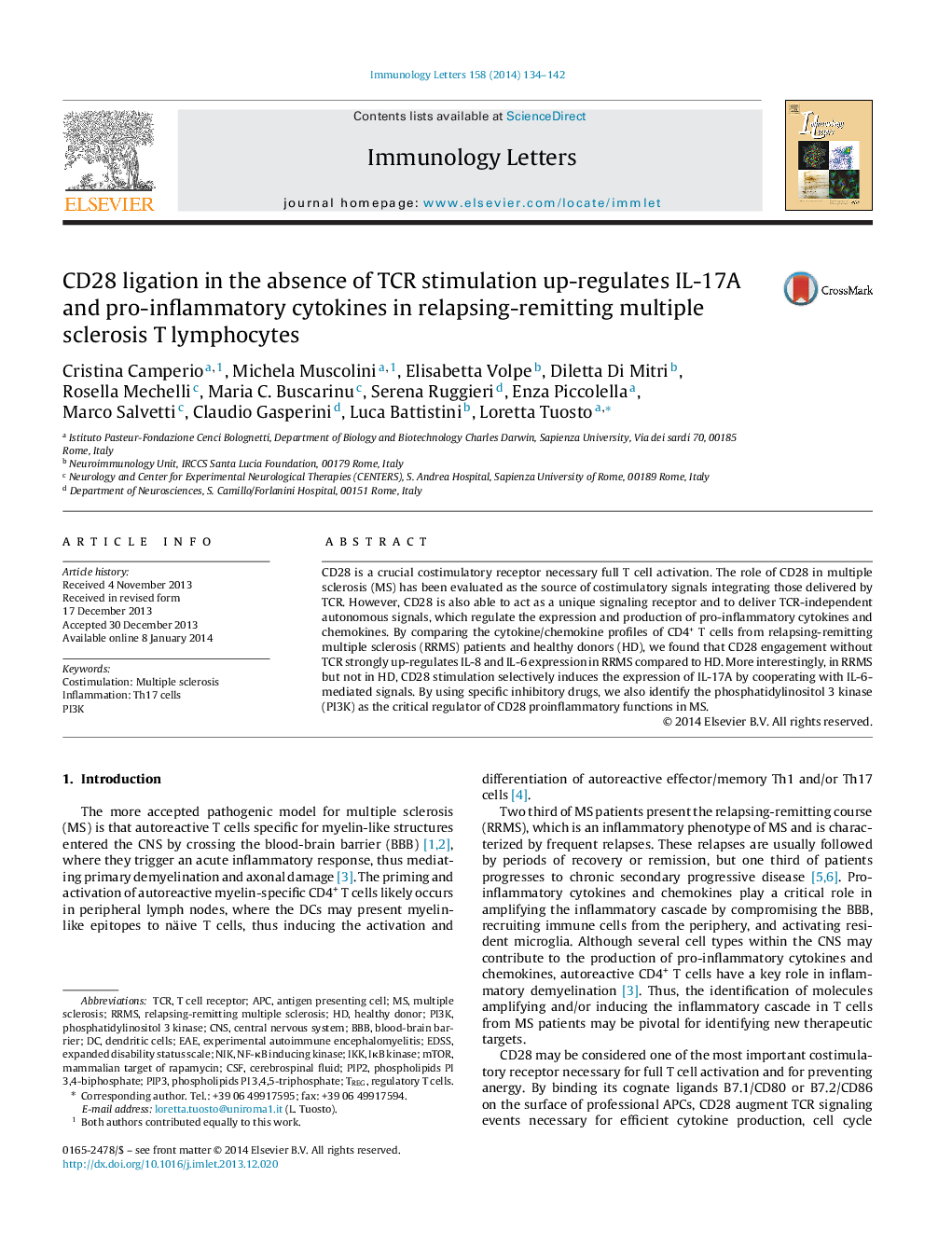| Article ID | Journal | Published Year | Pages | File Type |
|---|---|---|---|---|
| 3355457 | Immunology Letters | 2014 | 9 Pages |
•CD28 stimulation in the absence of TCR amplifies pro-inflammatory cytokine production in CD4+ T cells from RRMS patients.•CD28 cooperates with IL-6 in inducing IL-17A expression in RRMS T lymphocytes.•Targeting the PI3K signaling pathway impairs CD28-induced pro-inflammatory cytokines in RRMS.•Identification of CD28 and PI3K as critical regulators of the inflammatory response in MS.
CD28 is a crucial costimulatory receptor necessary full T cell activation. The role of CD28 in multiple sclerosis (MS) has been evaluated as the source of costimulatory signals integrating those delivered by TCR. However, CD28 is also able to act as a unique signaling receptor and to deliver TCR-independent autonomous signals, which regulate the expression and production of pro-inflammatory cytokines and chemokines. By comparing the cytokine/chemokine profiles of CD4+ T cells from relapsing-remitting multiple sclerosis (RRMS) patients and healthy donors (HD), we found that CD28 engagement without TCR strongly up-regulates IL-8 and IL-6 expression in RRMS compared to HD. More interestingly, in RRMS but not in HD, CD28 stimulation selectively induces the expression of IL-17A by cooperating with IL-6-mediated signals. By using specific inhibitory drugs, we also identify the phosphatidylinositol 3 kinase (PI3K) as the critical regulator of CD28 proinflammatory functions in MS.
